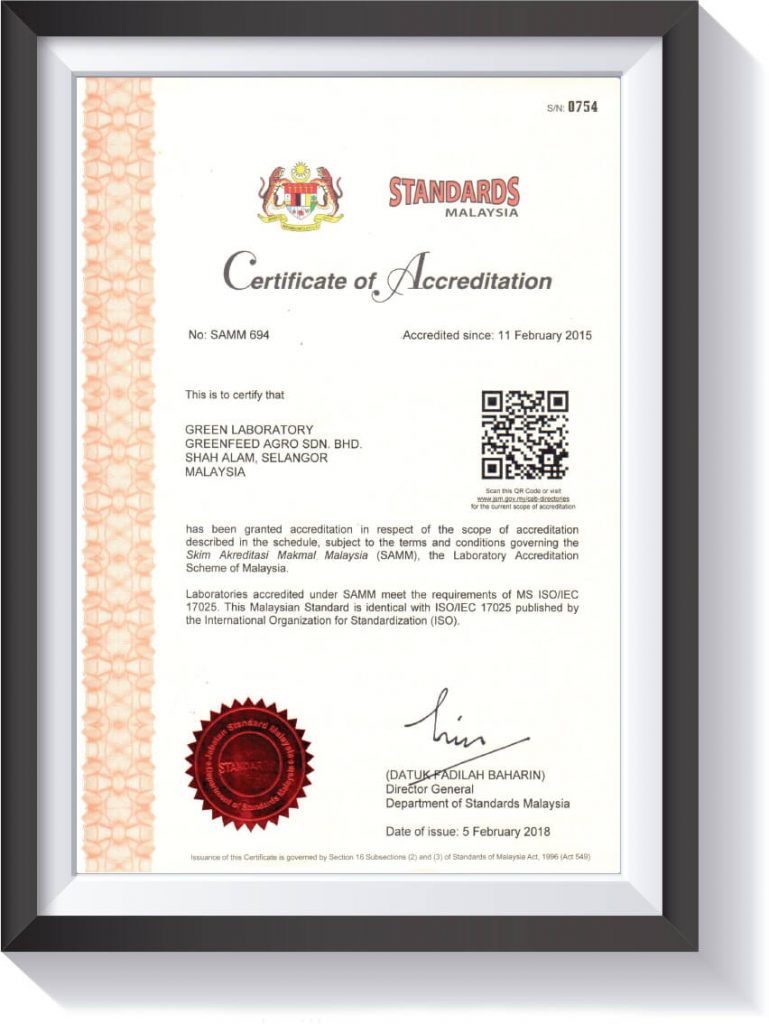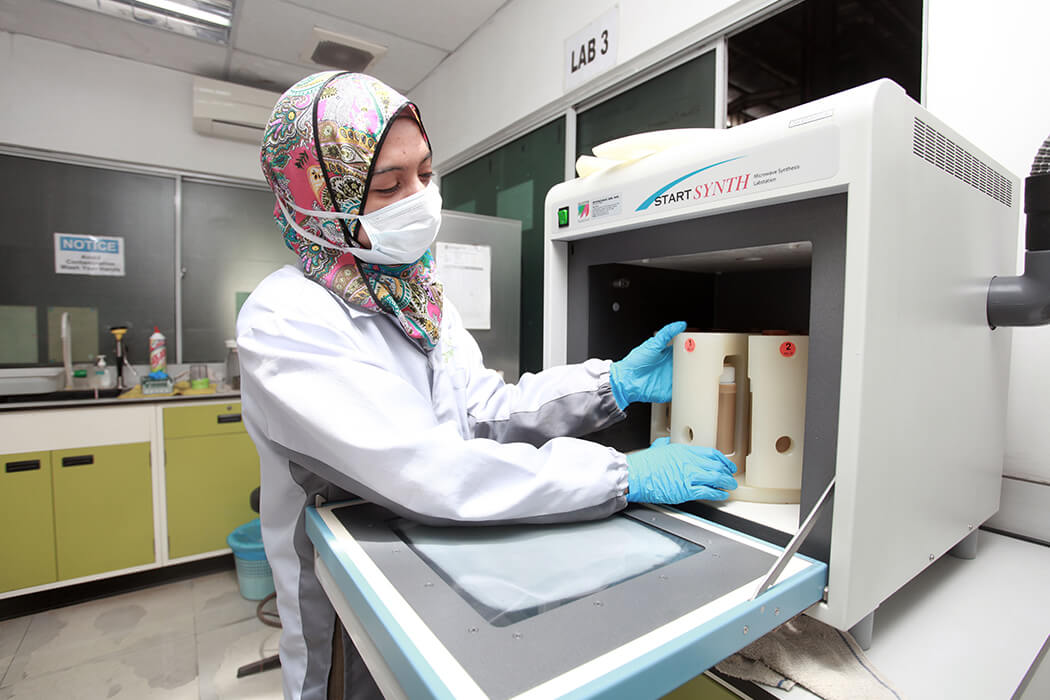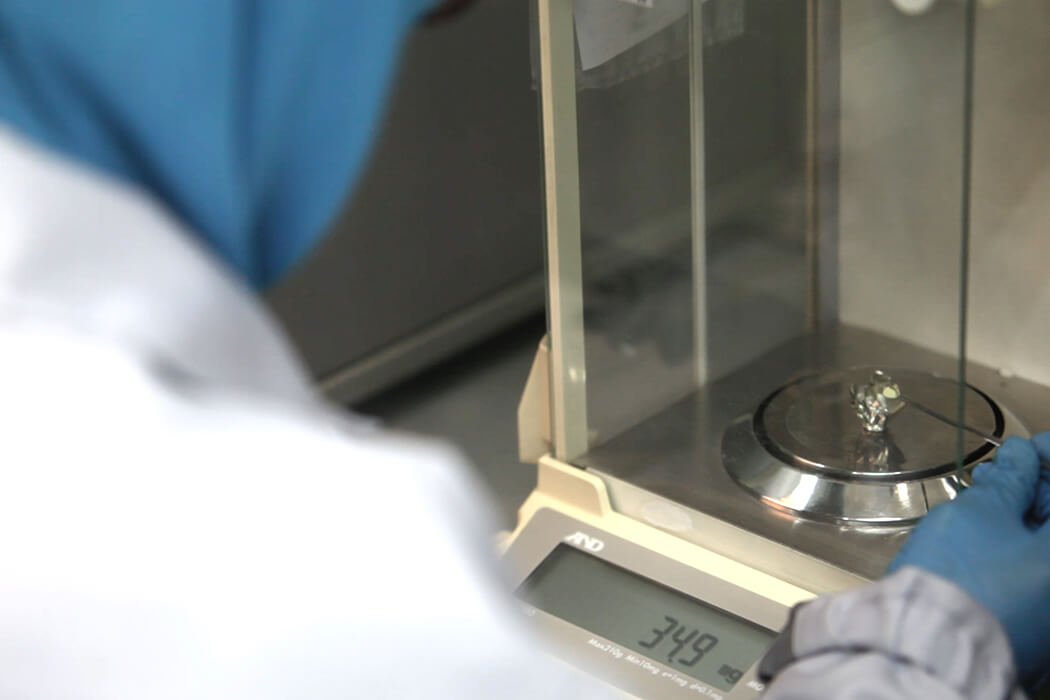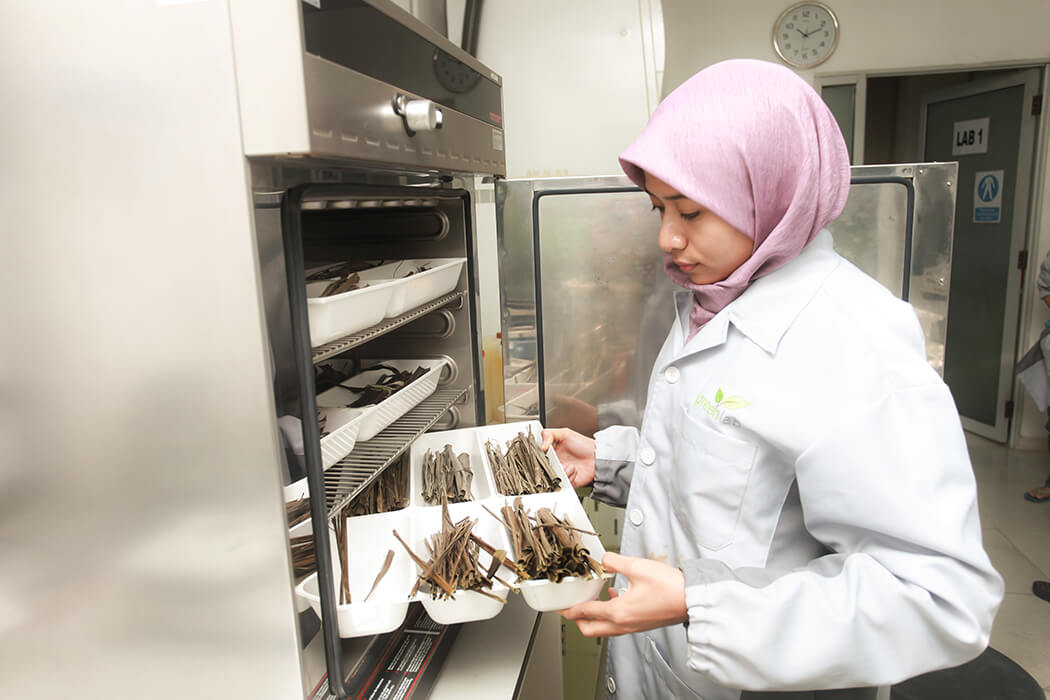Engaging scientists in laboratory sustainability to reduce nutrient waste!
Laboratory
At Green Lab, we take pride in our mission to foster a culture of sustainability through science, with our Green Lab Certification Program at its core. This program educates and engages scientists on laboratory sustainability best practices, empowering them to actively minimize the environmental impact of their operations.
Our commitment to efficiency and precision is reflected in our advanced testing procedures, which ensure rapid and accurate analysis of major nutrients such as NPK (Nitrogen, Phosphorus, Potassium), Calcium, and Magnesium in fertilizers, leaves, and soils. Each test is completed in under 9 minutes, providing timely and reliable results that support research and decision-making while upholding high sustainability standards. Recognized by Standards Malaysia and fulfilling ISO/IEC 17025 requirements since 2015, we also focus on selecting less hazardous, more sustainable chemicals and designing protocols that reduce or eliminate the use of hazardous substances, offering comprehensive nutrient analysis as part of our journey toward Green Lab Certification


No. SAMM 694
Our Objective

Soil Analysis
The physical and chemical characteristics of the soil need to be considered before making any soil management decisions or planning a nutrient application strategy. Soil pH, Cation Exchange Capacity, organic matter and soil texture have an impact on how we manage our soil and crop. Soil testing may be carried out for various purposes.
Mainly on:
- Assessment of land capability for various forms of agriculture
- Identifying and quantifying soil constraints (e.g. salinity)
- Monitoring of soil fertility levels
- Providing guidelines as to the type and amount of fertilizer to be applied for optimum plant growth on the particular site
The report also interprets the results compared to benchmark levels and gives recommendations to avoid deficiencies. The nutrients included in this analysis are:
- Nitrogen (N), Phosphorus (P), Potassium (K), Calcium (Ca), Magnesium (MgO)
Cation Exchange Capacity (CEC), pH, Electrical Conductivity (EC), Carbon Nitrogen Ratio (C/N Ratio)
Fertilizer Analysis
- Qualitative and quantitative analysis
- Major and trace elemental analysis
- Chemical and physical analysis
- Slow Release, Control Release, Feed grade, Liquid, Phosphate, Urea, UAN.


Full Spectrum Leaf Analysis
- Nitrogen (N), Phosphorus (P), Potassium (K), Calcium (Ca), Magnesium (MgO), Sulphur (S), Boron (B), Copper (Cu), Iron (Fe), Manganese (Mn), Molybdenum (Mo), Zinc (Zn)
